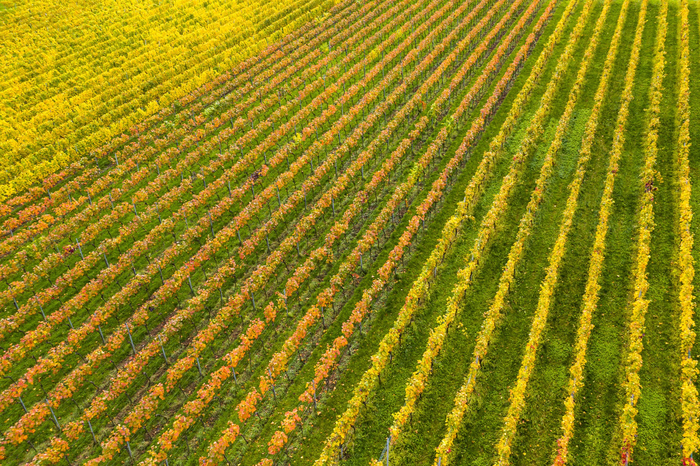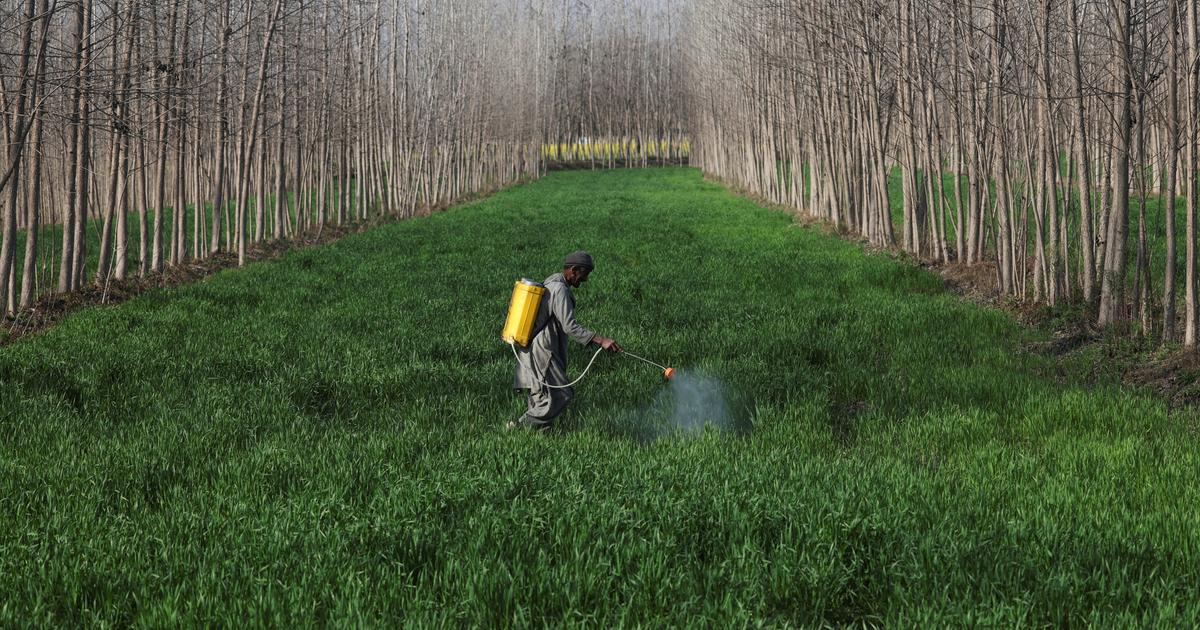A farmer sprays pesticides against weeds on a wheat field (archive image)
Photo: Daniel Bockwoldt / DPABetween peasant protests and demands for more environmental protection, agriculture is still in upheaval. At least when it comes to the use of pesticides on German fields, a trend seems to be emerging: The amount of weed and pest killers sold fell by 6.7 percent last year compared to 2018, said Agriculture Minister Julia Klöckner (CDU). That is another decrease - to what is apparently the lowest value in the past 20 years. This is evident from the figures in the annual report on sales of plant protection products.
According to the Agricultural Industry Association (IVA), the lobby group for the agrochemical industry in Germany, around 27,000 tons of active ingredient were brought onto the market. For the active ingredient glyphosate, which is particularly in the public eye, the year-on-year decline was 11.3 percent.
"The current figures and the trend of recent years show that we are on the right track here," said Klöckner. However, the minister restricted: "It will not work without pesticides." In order to secure harvests, the plants would have to be protected from attack by pests and fungi.
In addition to the dry weather, which favored the development, Klöckner named three reasons for the persistent decline: the breeding of plants that are more resistant to pests, the increased use of biological and non-chemical alternatives and a changed awareness among farmers.
Federal Environment Agency: German figures in an EU comparison "at a very high level"
The President of the Federal Environment Agency, Dirk Messner, criticized, however, that the sale of plant protection products is still "at a very high level" compared to other EU member states. The current figures could therefore "not hide the fact that agriculture has hardly developed in the direction of ecological sustainability".
The environmental protection organization WWF criticized the decline as inadequate: "To stop the decline in biological diversity in Germany, a clearer decline in the sale and use of pesticides is necessary - in private allotment gardens as well as on communal green spaces and in agriculture," said Rolf Sommer, Head of Agriculture and Land Use at WWF Germany. The Federal Ministry of Agriculture should no longer delay phasing out pesticides such as glyphosate. "It is up to the Federal Ministry of Agriculture to finally initiate the necessary adjustments to the Plant Protection Application Ordinance," said Sommer.
The Federation for Environment and Nature Conservation Germany (BUND) spoke out in favor of a ban on pesticides in protected areas.
New "red areas" should help against nitrate pollution
With regard to the issue of nitrate pollution in groundwater, which enters the environment through fertilizing the fields in particular, the Federal Cabinet has meanwhile introduced new regulations for the designation of so-called red areas. Together with the fertilizer law, which was amended at the beginning of May, there is "a solid basis" to reduce the nutrient pollution of water, said Federal Environment Minister Svenja Schulze (SPD).
In the particularly polluted areas, farmers will have to comply with stricter fertilizer regulations in future. So far, the designation of these red areas has been handled differently by the federal states. According to the Ministry of Agriculture, this led to "considerable criticism" from the EU Commission - but also from farms.
EU Commission threatens to take further action
According to the Ministry of the Environment, the EU Commission has threatened Germany with another lawsuit before the European Court of Justice if the states do not designate the contaminated areas by the end of 2020 and the states do not also include other areas according to uniform standards. On September 18, the Federal Council is supposed to deal with the administrative regulation.
The German Farmers' Association (DBV) demanded that the federal states "urgently need to do their homework". Companies that operated properly must not be "unjustifiably" covered with stricter conditions, demanded DBV President Joachim Rukwied.
The Federal Association of Energy and Water Management (BDEW) warned against an artificial "calculation" of groundwater pollution. What is needed is a real and sustainable reduction in nitrate inputs, especially in the red areas.
Icon: The mirrorcaw / dpa-AFX / AFP








